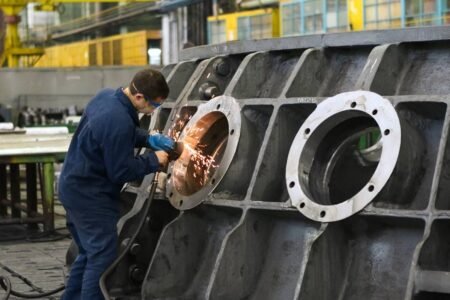The European Commission has presented a proposal setting specific rules on working time for the inland waterway transport sector. This proposal would implement the agreement reached by EU-level representatives of employers and employees in this sector.
Advertisement
The agreement sets minimum rules on working time for passenger or cargo transport ships in inland navigation across the EU. These rules would apply to crew members and shipboard personnel and would complement the general working time Directive (2003/88/EC), which does not cover inland waterway workers.
Once agreed by the Council, the proposed Directive would contribute to improving working conditions for 31,000 crew members and shipboard personnel and to fairer competitive conditions for the 9,645 enterprises active in this sector.
Under the proposal:
- total working time could not exceed 48 hours per week, though this could be averaged over up to 12 months
- total night working time could not exceed 42 hours per week
- workers would be entitled to at least four weeks’ paid annual leave, and to paid annual health checks
- workers would be entitled to at least 10 hours’ rest every day (with at least six hours uninterrupted) and to at least 84 hours’ rest in total every week.
Background
There are more than 37,000 kilometers of inland waterways in the EU, connecting hundreds of cities and industrial regions. 20 out of 28 Member States have inland waterways and 13 are interconnected by inland waterways. Around 500 million tons of freight is transported on inland waterways annually in the EU. Over 75% of the inland waterway transport takes place across more than one Member State. The agreement on working time rules for the inland waterway sector results from an initiative by the European Barge Union (EBU) and the European Skippers’ Organisation (ESO), representing the employers’ side, and the European Transport Workers’ Federation (ETF), representing the workers’ side. EU-level representatives of employers and workers concluded this agreement on 15 February 2012 and asked the Commission to submit it to the Council for implementation as a Directive, in accordance with Article 155 of the Treaty on the Functioning of the EU (TFEU). Following this request, the Commission has examined the agreement with regard to its legality in relation to EU law, the mandate and representativeness of the signatory organisations, the impact of the provisions on small and medium-sized businesses, and its economic and social effects.
The Working Time Directive (2003/88/EC) applies in principle to all workers. However, crucial aspects related to daily rest, breaks, weekly rest period and length of night work do not apply to transport sectors.
For these sectors, the Working Time Directive provides for a sectoral approach, with the possibility for separate provisions which are adapted to the specific needs of the different transport sectors (Article 14 of the Directive). This approach was needed as workers in the transport sectors have specific working patterns which include for example long hours of work during short periods of time, and living at their workplace or working a long way from home.
Sectoral EU working time Directives, which implement agreements of European social partners, already exist for mobile workers in civil aviation, in cross-border rail transport, and for seafarers.
The proposal presented today takes account of the distinctive working conditions in the inland waterway transport. It provides some flexibility to suit the specificity of this sector, while ensuring a high level of protection for these workers’ health and safety. It covers both crew members and shipboard personnel (for example, cooks, cleaners or musicians on a passenger transport ship).
The proposal will be sent to the Council for adoption as a Council Directive. The European Parliament shall be informed, as foreseen by Article 155(2) of the Treaty on the Functioning of the EU (TFEU).
Further information
Working Conditions – Sectoral Working Time






